Main Site
Online-Manga
Doujinshi
Stationery
| How
- To
Contest Submission INTRODUCTION
Depending which magazine, the first thing one needs to do is to read the contest rules, cut out the entry form, and especially make sure you are in the right genre. If you are a regular reader of that magazine, then you will get the sense of what the magazine wanted. PAGE REQUIREMENT
MY CASE
|
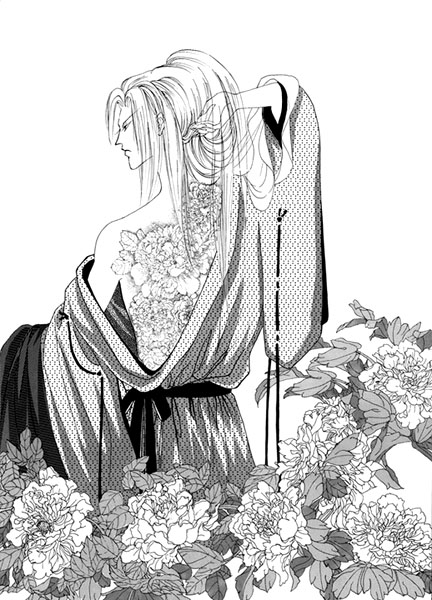 |
TOOLS
If you are not already familiar with the tools &
materials used in manga,
you can find that out in the tools section.
THUMNAILS
With sequential art, sequential storyline like manga,
you absolutely need to plot out a
thumbnail (storyboard) of how the pages should follow
each other. And depending on
which country you are from, whether you read left to
right, or right to left.
Some professional manga artists are even required to
submit a script (illustrated) to his/her editor.
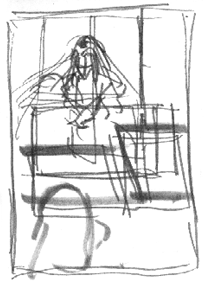
![]()
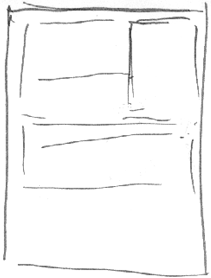
![]()
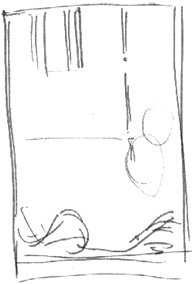
PENCIL DRAFT
I do my pencil draft full-size. This is the part that you can cut & paste,
move around indivisual panels to get the best composition. The paper choice
is up to you, although sometimes I find tracing paper can be helpful in repositioning.
(click on image to view full size)
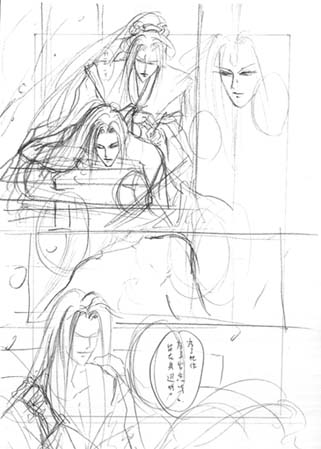
INKING FINAL
Once you are happy with the layout, start preparing the final paper. (Bleedproof Paper for Pens)
As I said, submission material all has to be B4 size. On B4 size paper or the equivalent.
B4 is just the convenient way of refering to the industry size. The actual artwork size is (22.5 cm x 31.7 cm).
If you are not using a pre-printed commercial manga paper, then you would have to rule guides yourself.
Sample page in the TOOLS section.
FINAL ART
SIZE
Regardless of the size of the paper you use, ALL FINAL
ART must be within the frame (22.5 cm x 31.7 cm) . ALL dialog boxes must
be within the dialog frame (18cm x 27 cm) All commercial Japanese
manga paper already has both guide-frames pre-printed in non-photo blue.
(Click on image to view full-size)
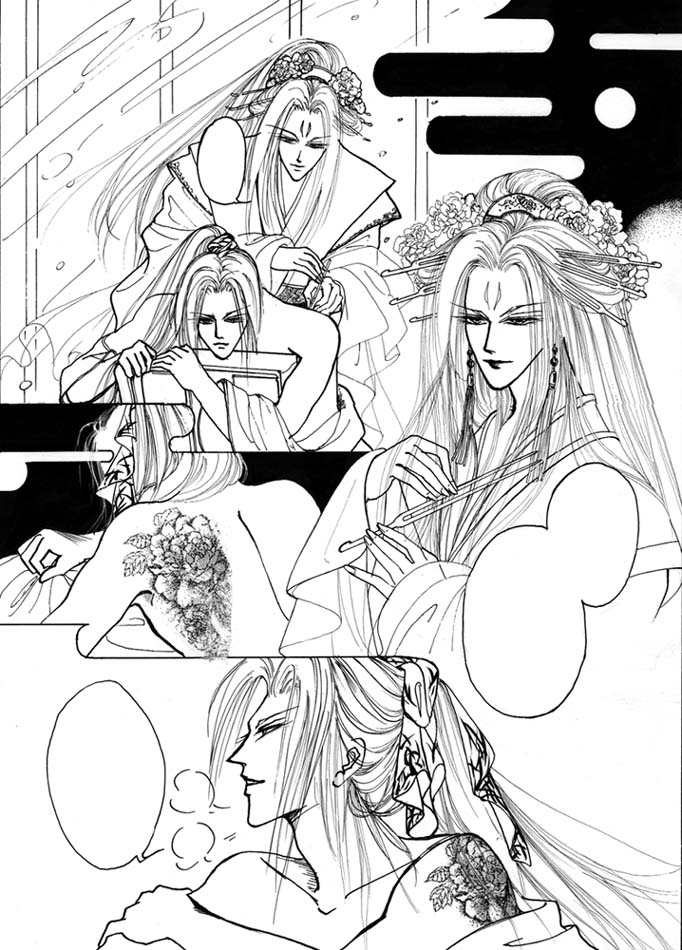
SCREENTONE
Touch-ups and corrections to the inked page are then made before screentones.
After you stick on the screentone, it would be difficult, (though not impossible), to make corrections later on.
| TITLE
PAGE
This is the title page. The title is "TATTOO",
The title text is for the editorial people to lay out. I simply has to write the title on a piece of tracing paper taped to the artwork. You can tell, this is a Chinese language submission since the pages will read from right to left. Still, with only three pages, (four would have been better), the page flow is awkward. |
 |
|
|
|
| DIALOGS
For a submission, dialogs are NEVER written directly on
the artwork. The magazine editorial staff will layout
the text. Instead, the artist writes the dialog on
a piece of tracing paper (or film) laid over the artwork.
MISTAKE
RE-INKED
2ND PAGE
Notice that this pages IS A DIFFERENT VERSION
That just goes to say. I did not practice what I preached.
|
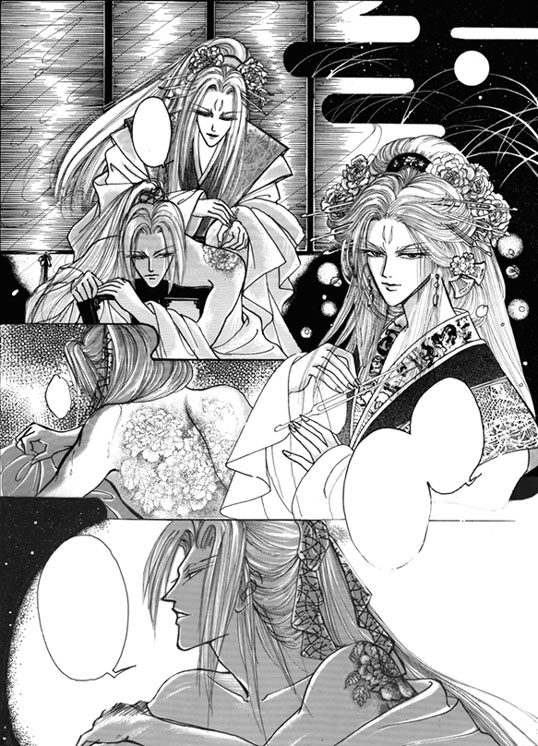 |
|
|
|
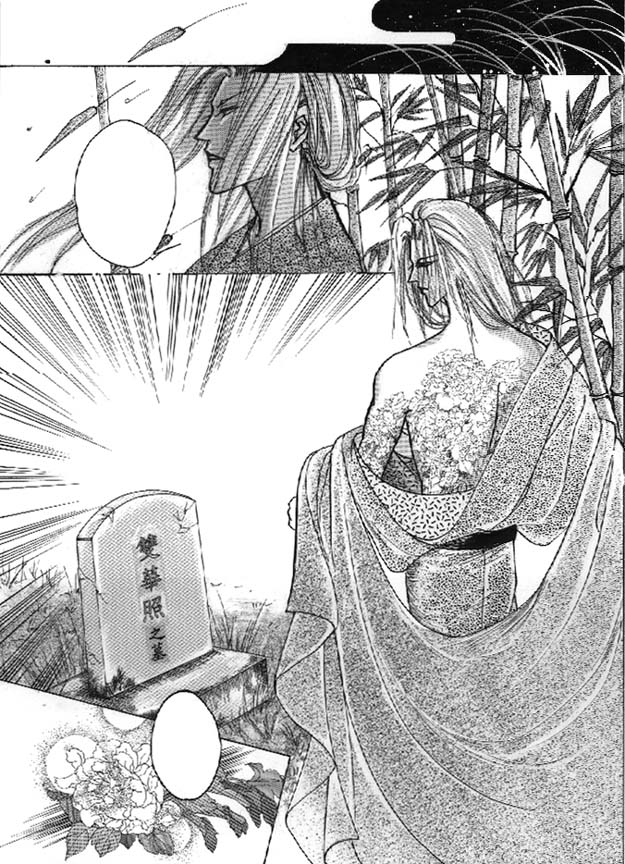 |
|
|
|
Notice that I did not use the traditional boxes to carry forth the story.
I am using the "doujinshi" style, which is freer & does not necessary confine the action
within boxes. With so much to tell, and so little pages, I try instead to give little visual
clues in the setting, in the props, in the Japanese screen motif.
Whether this submission is accepted or not ^0^,
it's still a good exercise to do short pieces. That's
all I have time for, anyway.
I don't like the second page. It failed. I'm trying
to think of an alternative solution.